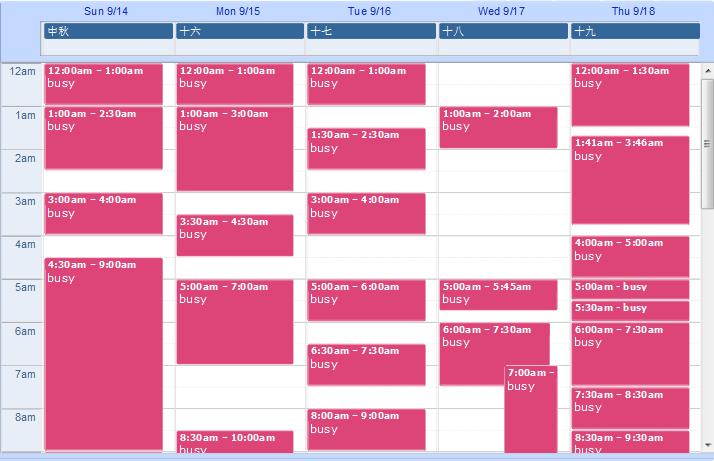I am of type ENFP (Extraverted iNtuitive Feeling Perceiving) in my MBTI testing. (If you happen to know MBTI, you know what I am talking about. I believe in it a lot).
I am a very typical P type of person – the type of people
– who don’t like schedules
– who likes to keep everything open ended
– who want to keep possibilities, instead of fixed.
– who want to understand the world instead of control it.
I typically don’t have schedules. However, in US, without a schedule, it is really hard to do anything.
– You need to make appointment with everyone you see. This is obvious, and not like in Shanghai, you can call someone and meet somewhere at the street corner or at a metro station, in CA particular, people need to drive long to meet.
– You need reservation whenever you go. You just don’t want to drive 10 miles only to find out there is no room there. It is especially bad when you have some people coming to the same place.
– You need reservation to pick up your cars, and return your cars.
– You need to plan very well on hotels, and restaurants, since the experience for a pre-arranged stay is excellent and they have everything setup for you, but walking-in, in contrast, is often very chaotic.
So, look at my calendar (I have a way to hide all the details. Just look at the time blocks)
I cannot imagine I have such a calendar in Shanghai.

To be frankly, people in US is far less busy than people in China. Generally speaking, working on weekend or after hour is relatively rare here than in China.
I am an ENFP, and I am an American. I agree with you. I hate making plans and scheduling because it sets you up for disappointment, and there is no excitement or surprise. Quite frankly, the overemphasis on planning probably has a lot to do with the amount of stress in a typical American’s life.
I’m always late for appointments and I can’t keep a schedule. However I am very responsible. It’s too bad our culture is like this. I appreciate that you noticed this as well. Its a relief to find out that I’m not the only one.
Yes, Amber, I feel happy that you also feel the same way. The modern society is constructed around the ideal type of ESTJ, and other types feel pressed by this standard. Did you know that ENFP is just 3% of the total population?